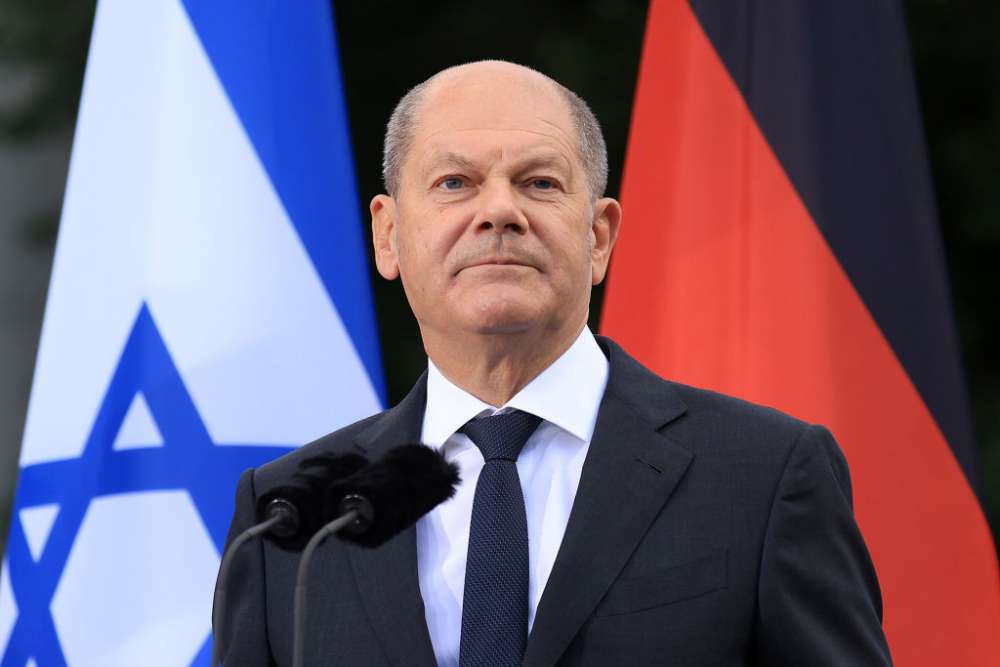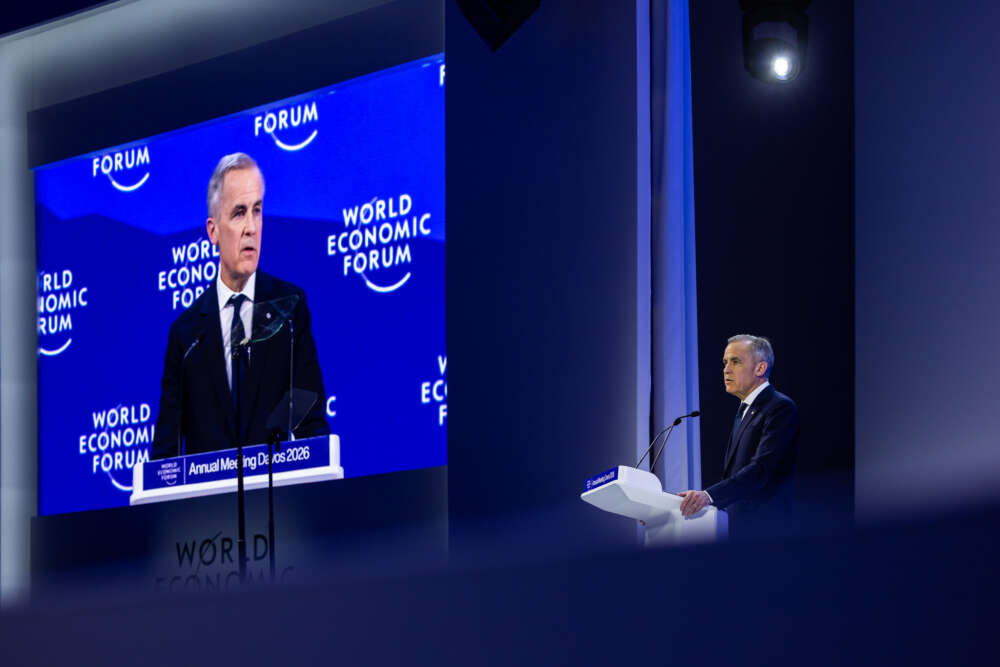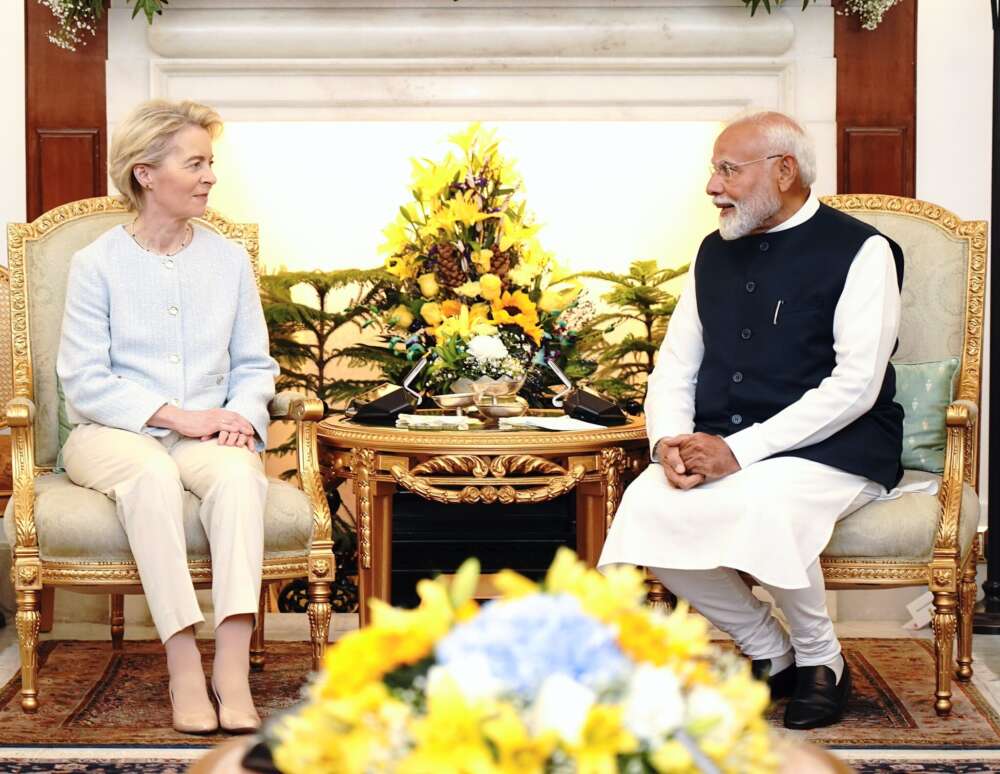“Reason of State”: Germany’s Support for Israel and Its Limits

In March 2008, then-German Chancellor Angela Merkel gave a speech to the Knesset in which she outlined the core of Germany’s approach to Israel:
“Each federal government and each chancellor before me were committed to the special historical responsibility of Germany for Israel’s security. This historical responsibility of Germany is part of the reason of state (Staatsräson) of my country. That means that Israel’s security is never negotiable for me as German chancellor.”
Fifteen years later, her successor Olaf Scholz invoked this very formula the day after Hamas massacred civilians on Israeli soil on October 7: “Israel’s security is German reason of state.” Scholz added that “in this moment there can only be one place for Germany: the place by Israel’s side.” The chancellor and his foreign minister, Annalena Baerbock, travelled to Israel soon after the Hamas attacks to express their solidarity with the country. However, the very term “reason of state” leads to the impression that this solidarity is unconditional. And Scholz added to this impression when at an EU summit in late October he stated that he had “no doubt” that Israel would adhere to international law when exercising its right to self-defense against Hamas, emphasizing that “Israel is a democratic state with very humanitarian principles that guide it.” This may sound like a blank cheque of support by Germany for the policies of the Israeli government – but that would be a misleading interpretation.
In 2001, right after the 9/11 attacks, former German Chancellor Gerhard Schröder declared Germany’s “unlimited solidarity” with the United States. That there were in fact limits became clearly apparent when Schröder turned into one of the most vocal opponents of the Bush administration’s Iraq war. Similarly, the limits of Germany’s support for Israel became clear in late October during a UN General Assembly vote on a resolution calling for a ceasefire that did not include a direct condemnation of Hamas and was passed with 120 votes in favor. Scholz and Baerbock agreed that Germany would abstain from the vote, thus infuriating the Netanyahu government. Israel’s ambassador to Germany, Ron Prosor, said afterwards that Germany’s abstention was “more than disappointing” and “morally wrong,” adding that “history will judge this.”
Prosor also pointedly reminded Berlin that “Germany’s ‘reason of state’ means actively standing with Israel, especially in difficult times.” However, the UN vote made it clear why the reason-of-state formula is misleading and wrong. Germany’s Staatsräson is based on the country’s own understanding of its national interest – not Israel’s understanding. And that understanding led Germany to conclude it better to not side with Israel in the UN vote. Prior to the UN meeting, German diplomats had worked with the sponsor of the resolution, Jordan, to improve the text. They were not fully satisfied with the result. But after working with their Jordanian counterparts on changing the text they did not want to alienate Jordan, an important German partner in the region, by following Israel’s wishes for Germany to vote against the resolution. That non-Western countries overwhelmingly supported it may have been another reason for Berlin to abstain. Both Scholz and Baerbock have spent a lot of energy trying to improve relations with the so-called Global South. They may have wanted to avoid giving further ammunition to those leveraging charges of double standards vis-à-vis the West by voting against a resolution that calls for a ceasefire.
In mid-November, and in contrast to his seeming certainty that Israel would adhere to international law in Gaza, the German chancellor called out Israel for its policies in the West Bank, saying “[we] don’t want any new settlements in the West Bank, no violence by settlers against the Palestinians in the West Bank.” Just this past week, the German government moved to support EU sanctions against radical settlers in the form of entry bans. Scholz reiterated Germany’s commitment to the two-state solution and said: “If some in Israeli politics distance themselves from this, we will not support them.” And on Saturday, Scholz stressed in a call to Israel’s Prime Minister Netanyahu “that more humanitarian aid must reach people in the Gaza Strip and this must happen on a reliable basis” while discussing “the necessary efforts for the greatest possible protection of civilians.” On her part, Foreign Minister Baerbock last week called on Israel to “adjust” its military campaign to allow for more aid to address the “catastrophic” situation of Gaza’s residents.
Over the past 40 years, Germany has consistently been one of the biggest financial supporters of the Palestinian territories. Defying calls from within some German political parties to stop all assistance to Gaza since that aid may benefit Hamas, the German government has in fact expanded its humanitarian support for Gaza over the past months. After the October 7 attack, due to public pressure, the government ordered a review of all programs in the Palestinian territories, temporarily halting disbursements of some grants, and sent inquisitive letters to grantees. But most of the funding is expected to continue after the review. While some protestors in Berlin have chanted the heinous slogan “Free Palestine from German guilt,” Germany in fact continues to be a key supporter of the Palestinian territories.
It is safe to assume that neither Olaf Scholz nor his predecessor Angela Merkel trust Israeli Prime Minister Benjamin Netanyahu; yet compared to their Spanish, Irish or Belgian counterparts, German leaders have publicly been much less critical of the actions of Israel’s far-right government. The reason for that, however, is not that the German government fully buys into the Israeli government’s narrative that Israel’s war against Hamas is “vital to the security of the democratic West.” According to this narrative, because Europe is said to be Hamas’ next target, it is “better to fight your enemy on their territory rather than wait for them to come to you,” which Israel is doing in Gaza — also for Europe. But to the ears of many German decision-makers, that narrative does not sound very credible. After all, it was Netanyahu’s government that until recently saw Hamas’ power in Gaza as a way to ensure that the two-state solution – which is favored by Germany – does not go anywhere.
While many German policymakers support the goal of ousting Hamas, they have doubts whether “eradicating Hamas” is a feasible goal and whether the Israeli government has any acceptable and achievable vision for who will rule Gaza post-Hamas. In a similar vein, unlike what DIE ZEIT journalist Jörg Lau argues in a recent Guardian piece, Berlin’s support for the Netanyahu government is not based on the “deep shock” that the German foreign policy establishment suffered after October 7 when they allegedly realized that their bet on engagement with Iran had failed and that after relations with Russia another cornerstone of German foreign policy had crumbled. To me, that does not seem to be the core of the analysis of key decision-makers. They are more likely to see the recent Hamas attack as a result of Netanyahu’s mistakes than of a failure of their own foreign policy. Rather, what explains the strong (but not unconditional) German support for Israel is the horrific nature of the October attacks on Israeli civilians as well as the fact that these acts have shaken the core of what the Israeli state was built for: providing a safe harbor for Jews so that they will never again be subject to atrocities like the mass murder orchestrated by the Germans during the Nazi years.
For good reasons, this resonates with a lot of German decision-makers: Germany does have a particular historical responsibility for Israel as a safe haven for Jewish people worldwide. That sense of responsibility includes the view that it is inappropriate for Germany to be in the front line of criticism against the Israeli government. That is why Germany will not move first to, for example, criticize Israel for the number of civilians who are killed in Gaza. But as the US and others become more vocal in their disapproval of Israel’s conduct of the war and its lack of a feasible endgame, the German government might well echo that criticism as we have started to see in recent weeks. We should also expect Germany to oppose any possible Israeli plans to expel the Palestinian population from Gaza or to re-take direct control over Gaza after the fighting ends.
In the end, that might also contribute to somewhat greater EU unity. The UN General Assembly vote in October showed a European Union very much divided (as has often been the case with regard to Middle East policy). Due to its special relationship with Israel, Germany has a unique role to play in terms of forging an EU stance that is built on the realization that (as German Foreign Minister Baerbock put it) “all civilians lives matter in equal measure.” Baerbock has already suggested that EU members take steps together “so that Hamas can never again perpetrate such acts of terror,” stating further that “the rules of the UN Charter and international humanitarian law should guide our work for a new tomorrow: towards a meaningful peace process allowing both Israelis and Palestinians to live side by side in peace and security, in two independent states.”
A slightly shorter version of this article was first published by AgendaPública on December 11, 2023.







